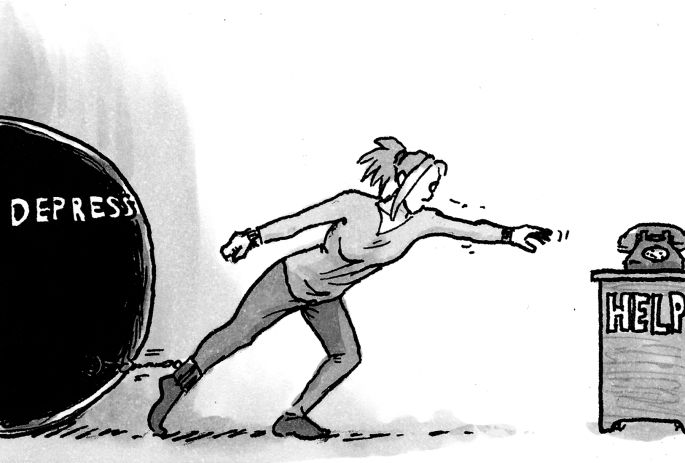it feels like anxiety levels are as high as they have ever been. another round of covid-19 has caused widespread worry and filled our brains with thoughts of icu numbers, home learning, job security, money, mental health, and a million other things. in fact, soon after the start of the pandemic,
psychologists saw a spike in google searches related to anxiety, panic attacks and treatments for panic attacks.and while for many people, existing through that anxiety is a daily battle that has its ups and downs, for others, the anxiety evolves into a sudden feeling of fear and a sense of impending doom — usually not triggered by a rational fear.according to the
centre for addiction and mental health (camh) in toronto, a panic attack is “a sudden feeling of intense fear or discomfort that peaks within minutes” and they can be accompanied by many different physical reactions — even when there is no imminent danger or cause.panic attacks come on quickly, last for five to ten minutes and peak within those ten minutes. according to
anxiety canada, they usually include at least four of these symptoms; racing or pounding heart, sweating, shaking or trembling, shortness of breath or feelings of being smothered, or choking, chest pain or discomfort, chills or hot flashes, nausea or upset stomach, dizziness or light-headedness, a sense of things being unreal or feeling detached from oneself, numbness or tingling sensations and fear of losing control and/or dying.
what happens to the body during a panic attack?
the intense symptoms of a panic attack are a result of the
body’s “fight or flight” response kicking in. the nervous system jumps into action in a dangerous situation, pumping adrenaline throughout the body and readying it to either evade harm or confront it. a raised heart rate sends extra blood to the muscles, your breathing quickens, supplying more oxygen to the body, and your senses get a little sharper.during a random panic attack, your body goes into high-alert mode often for no reason at all.
what causes panic attacks?
experts are not sure exactly why they occur, but panic attacks can be triggered by stressful situations, and some
experts believe they are tied to genetics or changes in the way parts of the brain function. and while anyone can have a panic attack, many people don’t have more than one or two in their lifetime. in fact,
according to the canadian association of mental health association in british columbia, one-third of adults may have a panic attack in a given year, while some people get them recurrently. this is often referred to as panic disorder —
about four per cent of canadians will experience panic disorder in their lifetime.people with
panic disorder experience unexpected and repeated attacks followed by bouts of constant concern about having another attack and/or behaviour changes related to the attack (e.g. avoiding places where they think another attack might occur.)according to
camh, it is not known why people develop panic disorder, but there is research suggesting that, like many mental health problems, panic disorder is caused by many biological or psychological factors. traumatic events or a family history of the disorder may also play a role.
can you prevent or treat panic attacks?
preventing panic attacks can be difficult as the reasons they occur are often unclear. however,
regular exercise and a
balanced diet have proven to reduce anxiety some of anxious feelings that sometimes trigger a panic attack.for people with panic disorder, relaxation techniques, meditation, stress management and other psychological
techniques can help. addressing any underlying triggers or traumatic events through cognitive behavioural therapy (cbt) has also shown to be an effective treatment.
what do i do if i am having a panic attack?
during a panic attack, remove yourself from the situation, make yourself comfortable and concentrate on breathing evenly and slowly. if you know you’re having a panic attack, try to remember that you’re not in imminent danger and that the attack will pass in mere minutes. try counting from one to five and down from five to one with every breath in and out to help focus on breathing instead of the anxiety.the signs of a panic attack are often mistaken for a heart attack, so it’s worthwhile to check in with your doctor if you are experiencing these symptoms.
nick beare is a toronto-based freelance writer. he can be reached here.
thank you for your support. if you liked this story, please send it to a friend. every share counts.
 3 minute read
3 minute read








